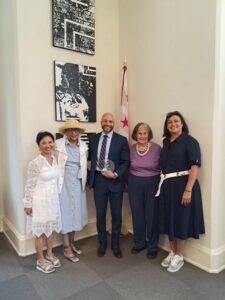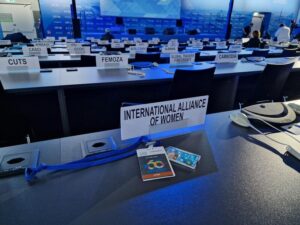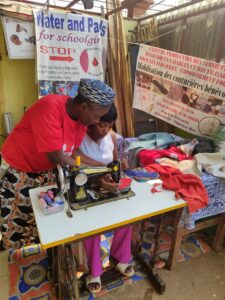 Senior Researcher, Ms Torild Skard (born 1936 in Oslo) is a pioneer in women’s studies with particular focus on women in politics and diplomacy. She has combined an exceptional political and diplomatic career nationally as well as internationally with extensive research and public writing based on her analyses and experiences.
Senior Researcher, Ms Torild Skard (born 1936 in Oslo) is a pioneer in women’s studies with particular focus on women in politics and diplomacy. She has combined an exceptional political and diplomatic career nationally as well as internationally with extensive research and public writing based on her analyses and experiences.
At the University of Oslo, Skard studied pedagogy, psychology and sociology and having finalized her higher education, she worked as a researcher at the Work Research Institutes in Oslo and the Institute of Social Sciences at the University of Tromsø. At the same time, she was politically active, and in 1973, she was elected as a Member of Parliament and became the first female President of the Lagting (Upper Chamber) in Norway. In Parliament, she actively promoted women’s rights, and after her election period ended, she engaged in research and published several studies on women in national politics and the Parliament, in local politics and journalism and in public and political life in general in Norway and the Nordic countries.
Torild Skard was appointed to a number of high positions in the foreign service and multilateral collaboration, often being the first woman in the post. In 1977, she was the first female Chairperson of the Norwegian National Commission for UNESCO and in 1984 the first Director for the status of women in UNESCO Headquarters in Paris. In 1986 she became the first female Director-General and in 1991 the first female Assistant Secretary General in the Norwegian Ministry for Development Cooperation and the Norwegian Ministry of Foreign Affairs in Oslo. She was elected Chairperson of the UNICEF Executive Board and in 1994 designated as the first female Regional Director for UNICEF in West and Central Africa in Abidjan.
Having left the UN system, Torild Skard wrote about women and development in Africa and conducted research on women and the UN from 1945 to the present day and on female presidents and prime ministers worldwide. Her studies of the UN provided new perspectives on the history and activities of the organization, and her book on “Women of Power” was awarded by Choice, the US Library Journal, “Outstanding Academic Title” in 2015. The book obtained considerable distribution and was among others instrumental in the establishment of a new training course on “Leadership, Women and the UN” at the United Nations System Staff College, UNSSC, in Turin.
Going deeply into the documents from the United Nations Conference on International Organization, UNCIO, in San Francisco in 1945, Skard’s research among others disclosed that the official history of the organization was partly incomplete, partly incorrect. Particularly the role Latin-American women played in the creation of the UN was overlooked and depreciated. The findings were followed up by other scholars and the International Studies Association, ISA, created a Bertha Lutz Prize to honour the Brazilian woman who was at the head of the efforts to include the rights of women in the UN Charter, and award scholars who later “conducted the highest quality public writing and research on women in diplomacy, defined broadly”.


